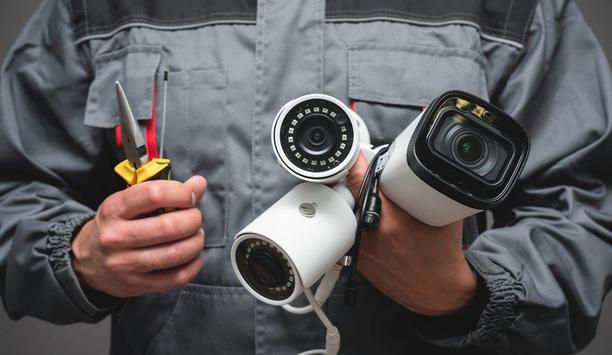An impact of the COVID-19 pandemic has been to accelerate change. In 2020, the security industry was among many others that sought to adapt to shifting norms. In the process, we grabbed onto new opportunities for change and, in many cases, re-evaluated how we have done business for decades.
If necessity is the mother of invention, perhaps crisis is the mother of acceleration. This article will reflect on how these themes impacted the physical security industry in 2020, based on content we published throughout the year, and with links back to the original articles.
Sensitive data leakage
Since the lockdown came into effect, organisations globally have undergone years' worth of transformations in a matter of months. Whether it has been to transition their operations online or moving their IT infrastructure to the cloud, there’s no denying that the face of business has changed permanently, experiencing a seismic shift, both operationally and culturally. As we enter the ‘next normal’ there remains a great deal of uncertainty around what the next 12 months holds and how organisations can navigate turbulence in the face of a possible recession.
One of the most notable and widely reported trends has been the switch to remote methods of work, or home working. With so many employees logging on from residential networks, through personal devices that may be more easily compromised, the overall attack surface has greatly increased, raising the risk of potential corporate and sensitive data leakage in their new home office settings. Security and data protection are larger issues than ever.
Good cybersecurity hygiene
Criminals will use the crisis to scam people for money, account information and more"
With a majority of the world working from home, businesses had to respond to this changing landscape. While it used to be that in-person networking events and sales pitches secured new projects or opportunities, the current landscape pushes businesses to be more creative in how they reach their customers. For example, with ISC West being postponed, many companies have turned to online resources to share new product demonstrations and other company news. Others are hosting webinars as a way to discuss the current climate and what it means for the industry.
Without the proper precautions, working from home could become a cybersecurity nightmare, says Purdue University professor Marcus Rogers. “Criminals will use the crisis to scam people for money, account information and more,” he says. “With more people working from home, people need to make sure they are practicing good cybersecurity hygiene, just like they would at work. There is also a big risk that infrastructures will become overwhelmed, resulting in communication outages, both internet and cell.”
Work-life balance
In a typical office with an on-premise data centre, the IT department has complete control over network access, internal networks, data, and applications. The remote worker, on the other hand, is mobile. He or she can work from anywhere using a VPN. Until just recently this will have been from somewhere like a local coffee shop, possibly using a wireless network to access the company network and essential applications.
There are many benefits of working remotely with productivity right up the top of the list
There are many benefits of working remotely with productivity right up the top of the list. By reducing the unproductive time spent commuting and travelling to meetings, we are able to get much more done in a day. Add to this the reduction in stress and improved work-life balance and it makes for an impressive formula of happier, healthier and more motivated colleagues. And it’s still easy to measure results no matter where someone is working.
Video conferencing platforms
Trade shows have always been a basic element of how the security industry does business - until the year 2020, that is. This year has seen the total collapse of the trade show model as a means of bringing buyers and sellers face to face. The COVID-19 pandemic has effectively made the idea of a large trade show out of the question.
The good news is that the industry has adapted well without the shows. A series of ‘on-line shows’ has emerged, driven by the business world’s increasing dependence on Zoom and other video conferencing platforms. The fact is, 2020 has provided plenty of opportunities for sellers to connect with buyers. Some of these sessions have been incredibly informative – and conveniently accessible from the comfort of a home office.
Online training courses
Online training has grown in popularity this year, and the change may become permanent
Online training has grown in popularity this year, and the change may become permanent. “We have seen unprecedented international demand for our portfolio of online training courses ranging from small installation companies to the largest organisations, across a wide range of sectors,” says Jerry Alfandari, Group Marketing Manager of Linx International Group, a UK training firm.
“More than ever, businesses are looking to ensure they have the skills in-house to coordinate their response to the changing situation. Individuals are also taking this time to upskill themselves for when we return to ‘normal’ by bringing something with them they didn’t have before. Perhaps unsurprisingly, people are still seeking to better themselves for what will be, eventually, a competitive market.”
Virtual trade show
‘Crisis and the Everyday’ was part of Genetec’s Connect’DX virtual trade show last spring. The virtual conversation – emphasising both in form and content the topsy-turvy state of the world – included interesting insights on the current pandemic and its near- and long-term impact on the industry.
In the middle of this pandemic, there is an opportunity to help security reinvent itself
“In the middle of this pandemic, there is an opportunity to help security reinvent itself,” said Brad Brekke, Principal, The Brekke Group, one of the panelists. “Amid the business disruption, we should ask ‘what’s the new playbook?’ It’s an opportunity for security to look at ourselves now and look at a business plan of what the future might look like. We need to align with the business model of the corporation and define our role more around business and not so much around security.”
Cloud-based platform
As a cloud-based platform for service providers in the security, smart home and smart business markets, Alarm.com adapted quickly to changing conditions during the coronavirus pandemic. In the recent dynamic environment, Alarm.com has kept focus on supporting their service provider partners so they can keep local communities protected.
“We moved quickly to establish work-from-home protocols to protect our employees and minimise impact on our partners,” says Anne Ferguson, VP of Marketing at Alarm.com. The Customer Operations and Reseller Education (CORE) team has operated without interruption to provide support to partners. Sales teams are utilising webinars and training resources to inform and educate partners about the latest products, tools, and solutions. Alarm.com’s partner tools are essential for remote installations and support of partner accounts.








